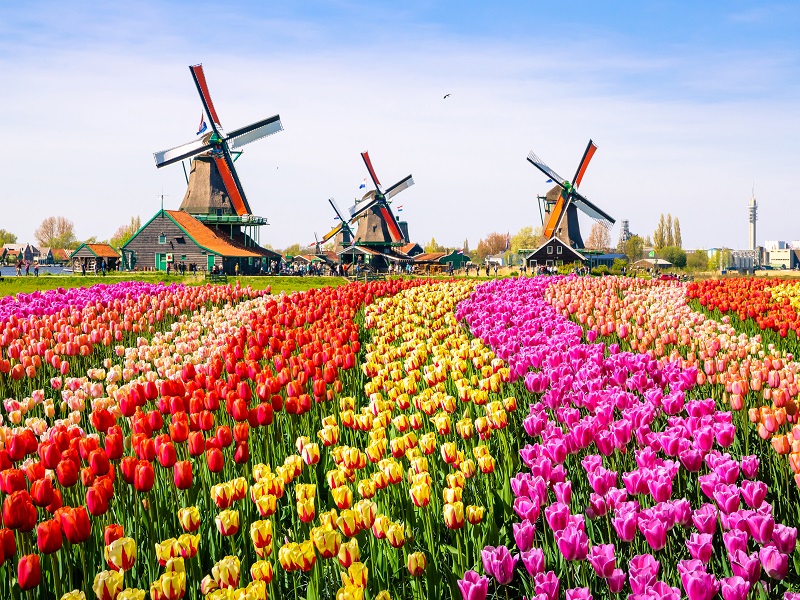The Dutch were once known for more than tulips and windmills. There was a time in which every Dutch village was built around a central church and the spire signaled more than just its location but also its importance. For Roman Catholics, the Dutch was a stronghold of serious and solid Christianity. As recently as the 1960s, way more than half the 2.7 million Dutch Catholics still
went to Mass regularly, even weekly. Forty years later, an average 439,000 Catholics went to church on any given
weekend. By 2017, that number had declined precipitously, down to about 157,900 people or a mere 6 percent
of all Dutch Roman Catholics.
Of course, if people stop attending, you can bet that means that there is a shortage of priests and an over abundance of church buildings. So Dutch Cardinal Wim Eijk has suggested that in the Archdiocese of Utrecht,
285 churches need to be closed. If that many closed, it would mean by 2030 there would be only about 15 church buildings left in the entire archdiocese. Without choosing it, it could be an archdiocese more on the scale of the early church than modern structures -- perhaps with a part-time bishop?!
The decline of Christianity in Europe is, indeed, no surprise. It has been coming for sometime. That said, the surrender of Christianity to a largely secular culture will be hard pressed to reverse with a minuscule number of churches and clergy. Further, it seems even more unlikely that those churches surrendering to the culture will find the will to restore a vigorous Christianity, orthodox in doctrine and faithful in practice.
So what's new? Nothing -- except the fact that once again a liberal Christianity that distances itself from Scripture and tradition is shown to have no traction against a secularized world. The hope for Christianity does not lie with a weak or shallow or compromised faith but with a robust embrace of what Scripture says, creeds confess, and liturgy prays. Those who fear a church rendered irrelevant by a culture going in a different direction have abandoned such a vigorous Christian belief and life in pursuit of detente. But they have shown that there is no irrelevance more to be feared than a church embarrassed by Scripture and confession.
Rome needs to wake up to this but also Lutheranism. We are too focused on trying to explain the cause of decline instead of directing our attention and energies to a renewed and robust confession of what the Scriptures teach, creeds confess, and the liturgy prays before the world. Our answers do not lie in surveys or polls or trying to figure out what the people outside the Church think. Our answers are before us. Scripture speaks the life-giving Word, baptism washes with life-giving water, and the Eucharist feeds with life-giving Bread and Cup. These are the means to a renewed Christianity and nothing more or less. As soon as we remember this and embrace it, Christianity will begin to halt and perhaps reverse the decline. It will not be because of our efforts but because the Lord is true to His promise and the Spirit works through the means of grace. Our witness is not some manufactured story or emotional appeal but the witness of a people who hear in the Word the voice of the Good Shepherd, who find in the font the living water that flows with life for the dead washed therein, and who meet at the altar the Lord who is priest and victim, host and food of the food that feeds eternal life. Strategies will not and cannot replace this focus upon the efficacious Word and the Sacraments that bestow what they sign.

The Dutch were predominantly Calvinist, not Roman Catholic.
ReplyDeleteI think he knows that. He mentions the 2.7 Million, not the whole population and then expands his discussion to the whole of Europe, and its empty churches. In case you missed it.
ReplyDeleteOdd then to refer to it as Dutch decline. Not a big deal but odd.
ReplyDelete